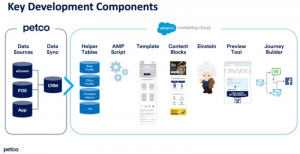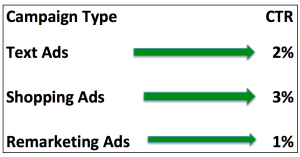
Peggy_Marco / Pixabay
In recent years remote working has grown from strength to strength. After COVID-19, it’s now almost the norm. In fact, Time called the corona outbreak, “the World’s Largest Work-From-Home Experiment.” However, not everyone has found this transition smooth.
If your team continues to work from home, you’ll have to find innovative ways to manage underperforming workers. After all, working from home can come with a whole set of distractions when the rest of the family is present.
On-premise, it’s easier to spot who’s productive and who’s slacking. However, with the right tools in place, this can also be achieved in a remote setting.
1. Steady Decline in Productivity
Digitally transformed enterprises have a plethora of tools to optimize operations. These can be leveraged to enhance collaboration, engage in performance tracking, real-time monitoring, and project management.
Some of these tools can also be utilized access real-time data and analytics to ascertain the team’s or an individual level of productivity.
While there may be distractions in a home setting, you are sure to have a solid understanding of their performance by being sensible about it. For example, you can look at the number of hours spent on enterprise infrastructure, the number of tasks completed, the number and emails sent and calls made, and more.
Whenever intervention is demanded, put the onus back on the staff to improve their output. Explore different variables like reasonable timescales offered to employees to complete a task. If the level of output decreased over time, find out why. Maybe it was the internet, perhaps it’s kids at home, or perhaps the home environment isn’t cohesive for enhanced productivity.
Whatever the case, ask them how you could help. Find out if there are ways the company can help individual staff members work better, remotely.
2. They Are Making Mistakes
One sure indicator that things aren’t working out as expected is when staff start making mistakes. They are missing more deadlines than before and are essentially getting sloppy. If it’s a software development team, you should also look for a rise in technical debt.
Underperformance also manifests itself in general forgetfulness. This can be anything from forgetting to follow up or not logging in each customer interaction. You might even notice that team members are distracted and getting spaced out (or disengaged) during videoconferences.
When you spot it, make time to address it!
3. Their Peers Have Started to Complain
Whether it’s working on-premise or remotely from home, when team members start complaining, you have to act quickly. Even with the tools available, you’re not going to get a complete picture of what’s going on. So listen to your staff when they complain, even if it’s about their peers.
During a videoconference, if you ask the team how the project is going and they seem distracted and unresponsive, it’s time to set up individual calls to get to the bottom of the problem.
During one-on-one calls, you’re more likely to be told “Colleague X” isn’t pulling their weight. Or maybe you will hear that “Colleague Y” always seems distracted and doesn’t deliver on time, delaying the whole project.
No matter what the issues might be, managers must handle them with care. This is because 2020 has been unlike any other year in recent memory. While “deadwood employees” must go quickly, it’s vital to identify the root cause behind their loss of productivity.
According to a study of over 300 employers conducted at the beginning of the pandemic, approximately 67% of respondents stated that supporting mental health and well-being as their primary challenge. As we continue to live with uncertainty, mental health remains at the forefront of corporate concerns.
If you’re leading a virtual team, the following best practices can help you effectively manage them:
-
Strive to create a remote workplace culture
-
Deploy multiple mediums of communication (along with guidelines on how to use them)
-
Establish and build mutual trust
-
Engage in security awareness and training
-
Create a flexible working environment
-
Engage in performance monitoring and tracking
-
Acknowledge hard work whenever you see it
If you’re working remotely, the following tips will help boost your performance:
-
Have a designated workspace
-
Don’t work from your bed
-
Don’t work in your pajamas
-
Establish a routine
-
Over-communicate whenever possible
-
Make time to exercise
-
Create structure and boundaries (and adhere to them)
-
Make yourself accountable at all times
As some of us head back into the office, it’s safe to say that remote working is here to stay. Companies like Twitter have already established a permanent remote work policy, and more are expected to follow.
As such, the way we work in teams and manage team members must also evolve to better align with the changing dynamics of modern work.
Business & Finance Articles on Business 2 Community
(65)







